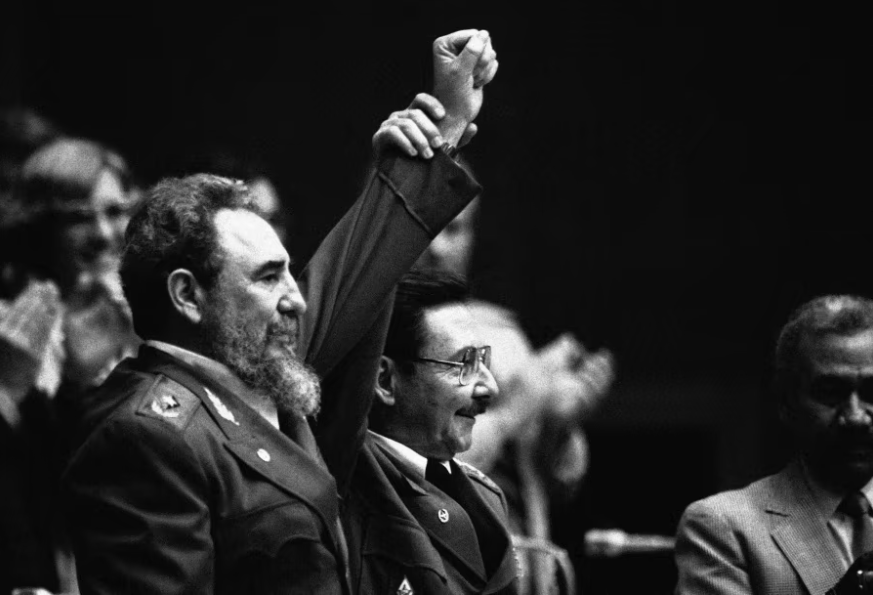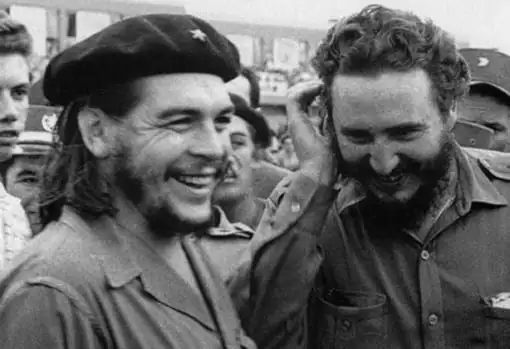COLLABORATE AS A VOLUNTEER OR WITH YOUR DONATION SO THAT “CUBA DECIDE” CAN CONTINUE FIGHTING FOR THE RIGHT TO CHOOSE OF THE CUBAN PEOPLE.
Since Fidel Castro seized power in Cuba in 1959, the country has experienced decades of socialist policies that have left an indelible mark on its economy and society. Despite promises of equality and prosperity for all, Castro’s communist regime has led Cuba into a state of widespread poverty and economic stagnation.
Under Castro’s leadership, the Cuban government implemented a series of centralized and statist measures that stifled private initiative and strangled the country’s economy. The nationalization of key industries, collectivized agriculture, and centralized planning resulted in a lack of incentives for production and investment, leading to chronic shortages of basic goods and a low quality of life for the Cuban population.
The Cuban economy was further impacted by the US-imposed trade embargo in the 1960s, severely limiting opportunities for foreign trade and access to foreign capital. While the embargo has been used by the Cuban government as an excuse to justify the country’s economic situation, the reality is that Castro’s socialist policies have been the main driver of poverty and misery in Cuba.

The lack of political and economic freedoms has also contributed to Cuba’s stagnation. Castro’s communist regime brutally suppressed any form of political opposition and restricted freedom of expression and association. This has created an atmosphere of fear and repression that has stifled any attempts at change or reform from within the country.
The lack of political and economic freedoms has also contributed to Cuba’s stagnation.
Despite the regime’s efforts to portray an image of social achievements, such as free education and healthcare, the reality is that these services have been eroded by decades of underinvestment and mismanagement. The quality of education and healthcare in Cuba has significantly declined, and Cubans face long waits and inadequate care in healthcare services.
Fidel Castro’s death in November 2016 marked the end of an era in Cuba, but his legacy remains controversial. Castro ruled Cuba with an iron fist for nearly five decades, and his death was celebrated by some as the end of an era of repression and authoritarianism. However, his relationship with Che Guevara, another revolutionary icon, remains an important part of his legacy. Guevara was a loyal follower of Castro and played a crucial role in the Cuban Revolution. His death in Bolivia in 1967, while attempting to foster revolutions in other Latin American countries, was a devastating blow to Castro and the revolutionary movement in Cuba.



In essence, Fidel Castro’s impact on Cuba has been characterized by poverty, repression, and economic stagnation. His pursuit of communist ideals has left the Caribbean island trapped in a perpetual cycle of suffering and hardship for its citizens. Despite Castro’s demise and some tentative reforms initiated by his successor, Raúl Castro, Cuba still struggles to break free from the shadows of its communist past and forge a path towards prosperity and freedom.
Cuba Decide is an initiative for citizen and international mobilization to change the system towards democracy and the Rule of Law. It seeks to subject the regime to the sovereign will of the people at the ballot box and pave the way for change. Now you too know the reality and the proposal. You can be part of the change and support the right to decide from the Cuban people. Change is in your hands. Join us.

